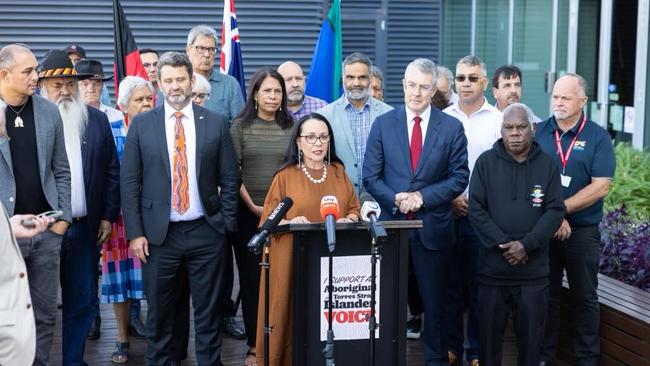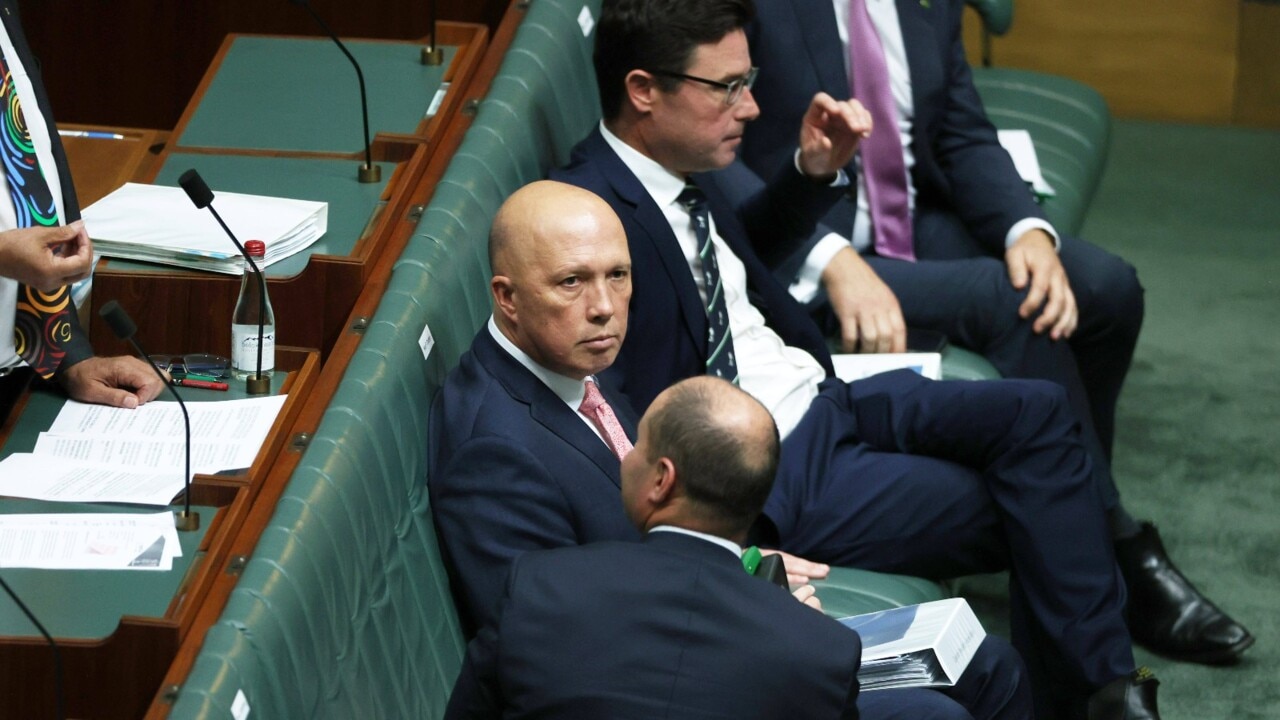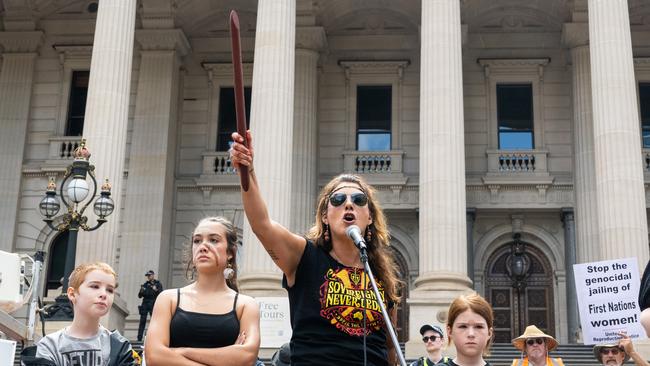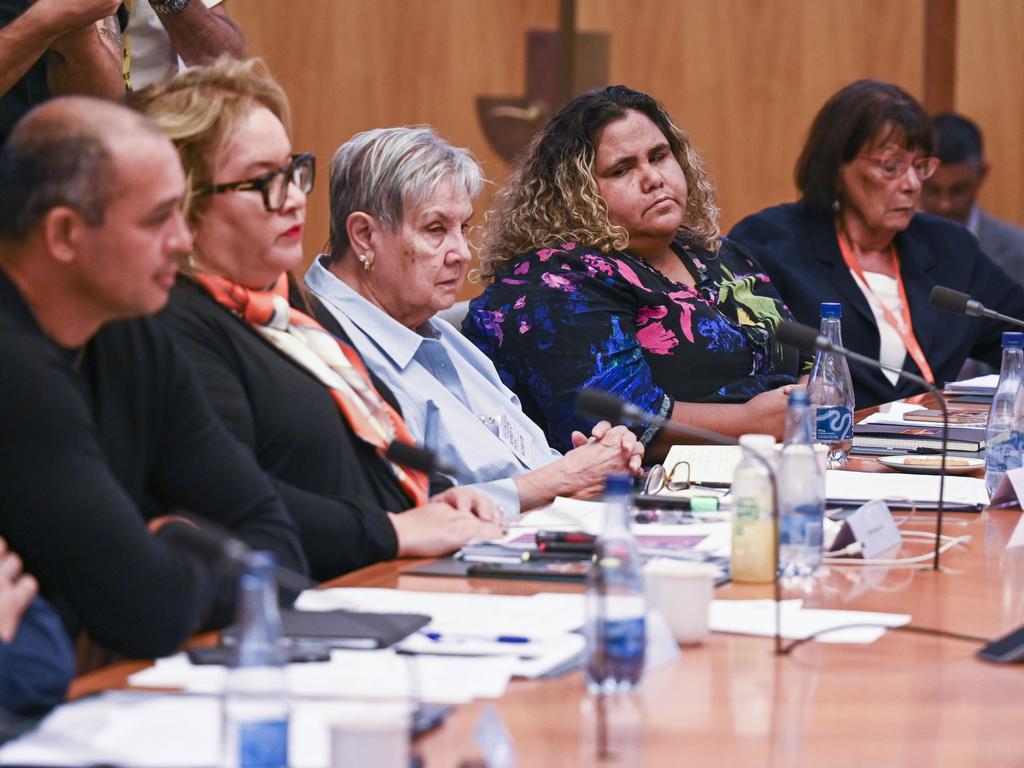Dismissing voice sceptics as ‘racist’ demeans debate

I am against the voice. I am also an Australian law professor who teaches public law courses. As most readers will recognise, that makes me pretty rare. My guess is out of Australia’s three dozen-odd law schools there might be four such law professors who are openly against this constitutional proposal. You could count us on one machine operator’s hand. Meanwhile, not a single person on the PM’s Constitutional Expert Group is a sceptic.
I also think there are very good reasons for opposing the constitutional amendment proposal. We have next to no detail. It will constitutionalise this body and thereby bring in the top judges who, in the name of interpreting the Constitution, will have the power to trump the elected parliament. We have seen that our top judges have become more and more inclined towards judicial usurpation or judicial activism, call it what you will.

The 2020 Love case is a perfect example of that. In the name of interpreting our Constitution the High Court decided non-citizens claiming Aboriginal ancestry would not be able to be deported (assuming the ancestry claims stood up to some sort of ill-defined scrutiny).
I have argued in various forums and publications that this was one of the worst-reasoned decisions in Australian constitutional law history. It is an archetypical example of judicial activism. And it is these same judges who would be put in charge of deciding all questions around this voice proposal – Does “may make representations” become a constitutional right to be consulted? What counts as “matters affecting Aboriginal … peoples”? Who counts as someone who qualifies as such? The list goes on and on, as The Australian’s Janet Albrechtsen has noted.

Then there is the fact this divides Australians by race in our Constitution itself. Or if you think the concept of “race” is scientifically dubious (as it is) then it divides us based on characteristics we are born with. That hasn’t worked out well anywhere on the planet. Should this get through it will also make much more difficult the task of enacting laws.
We already are one of only three democracies with a strong upper house, including Italy and the US. In my native Canada and in Britain the upper houses are appointed, not elected, and virtually never block any legislation from the lower house. So you win an election there and do what was in your manifesto. Here you win and then have to negotiate with a handful of independents. Or the Greens. Want to know why it’s hard to get the budget under control here? That’s a big reason.
Add to this a constitutionalised voice body – no one is against such a body that is simply the creature of statute – and it becomes harder again.
We know going in that elected legislatures back down in the face of undemocratic bodies. This happened in Canada. Since 1982, the national parliament has had the legal power to override Canada’s immensely powerful judges when they invalidate laws due to the Charter of Rights. But in four decades they have never done so.
The faults of the proposal are many; I mention only a few because one thing we are seeing is proponents of the voice taking to calling opponents names and bandying about the charge of “racism”. It’s becoming something of a pattern.
The most recent instance was by top barrister Bret Walker. I read the initial report of his Clayton Utz talk, the same way many others did, as bandying about the allegations of racism. Mr Walker then denied this was so. He denied he was labelling any individual as racist over his or her position on the voice. Here is precisely what he said in clarification: “My words … do not brand anyone as racist, let alone those inclined against the constitutional voice.
“The analysis of arguments that identifies a notion entailed in an argument as racist is not the wholesale condemnation of any individual as simply racist for putting that argument.”

Got that? My other day job is as a legal philosopher. What Walker seems to be saying in his clarification is that you can put forward a racist argument without yourself being a racist. And when can that happen? I can think of only two possibilities. One is where the arguer is too stupid to know he or she is in fact putting forward a racist argument. The other is when the speaker is knowingly prepared to use racist arguments for some ulterior motive, even though he is not himself a racist.
Those against the voice, says this top member of the legal fraternity, are not necessarily racists, they could just be stupid or conniving. Because the core allegation by Walker is still that he can “identify a notion” in some aspect of the “no” argument that “entails (it) as racist”. But of course Walker tells us he doesn’t mean this as a wholesale slur on our characters though. Phew!
Let’s be clear. This is just resorting to ad hominem arguments. It amounts to the implied claim that good people can only be on the Yes side. The No side is for the wicked (racists), the stupid and the conniving.
Let’s call them the “deplorables” and be done with it, shall we? Well, I think Mr Walker is wrong down the line. This proposal deserves to lose on its merits. Luckily its proponents aren’t doing it any favours.
James Allan is Garrick professor of law at the University of Queensland.






